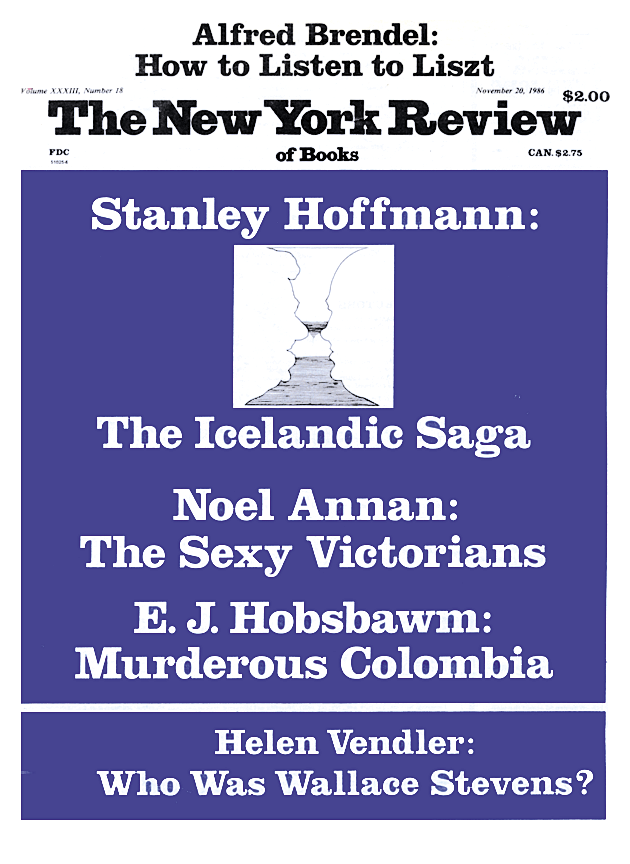In response to:
Diamonds Are Forever from the July 17, 1986 issue
To the Editors:
As Professor Leonard Thompson says in his thoughtful review of my book The Randlords [NYR, July 17], the dating of movements of population in South African history has political implications—at least it does for South Africans. For the rest of us the question of “who was there first” is neither here nor there as far as justice and injustice today are concerned.
In fact, few episodes in South African history do not have political implications today, a point I made myself, quoting the late C. W. de Kiewiet. That makes it the more dangerous to treat South African history provocatively, as I did. Here and there in my book I tried to tease the South African white liberals, of whom Mr. Thompson is among historians such a distinguished representative, into reflecting on their own role in their country’s past and present.
Perhaps I tried too hard. The undignified posture of the plaintive author is even more absurd if, having tried to provoke, he is taken aback by the result of his provocation.
All the same, I certainly did not mean Mr. Thompson to think that I swallowed “official South African propaganda,” and I should be unhappy if your readers were left with such an impression. I do not denigrate African resistance to apartheid. I only said, and still think, that the story of resistance has been complicated by the comparative prosperity of some (not all) black South Africans, as well as by white repression.
When—most “egregious of all” to Mr. Thompson—I teasingly compared the Boer Retief’s manifesto of 1836 with the Declaration of Independence fifty years earlier I was thinking of the passage where the American colonists (who included slaveowners) complained that the British monarch had encouraged “the merciless Indian Savages, whose known rule of warfare, is an undistinguished destruction of all ages, sexes and conditions.” Here were two groups of white settlers, both, as they saw it, hampered by a government in London [from] dealing as they wished with the native inhabitants.
What seems to have upset Mr. Thompson most of all is my teasing suggestion that the 1900s Progressive Party, anti-Boer English-speakers connected with the mining houses, prefigures the present-day Progressive Federal Party.
Doesn’t it? For more than twenty-five years the Progs, as I know very well, have borne the burden of constitutional opposition to the Nationalist government. At the same time, as Mr. Thompson knows very well, the PFP has enjoyed close, not least financial, relations with the mining industry, especially in the form of Mr. Harry Oppenheimer and his Anglo-American Corporation. That this truth may fit in with the Pretoria government’s scheme of things or demonology does not make it less true. It only shows yet again that South Africa is a land of ambiguities and ironies where things are not always as simple as Mr. Thompson—and no doubt the rest of us—would like to think.
Geoffrey Wheatcroft
London, England
Leonard Thompson replies:
I’m sorry that the author of such an interesting and successful book should reply to my comments so frivolously.
This Issue
November 20, 1986


